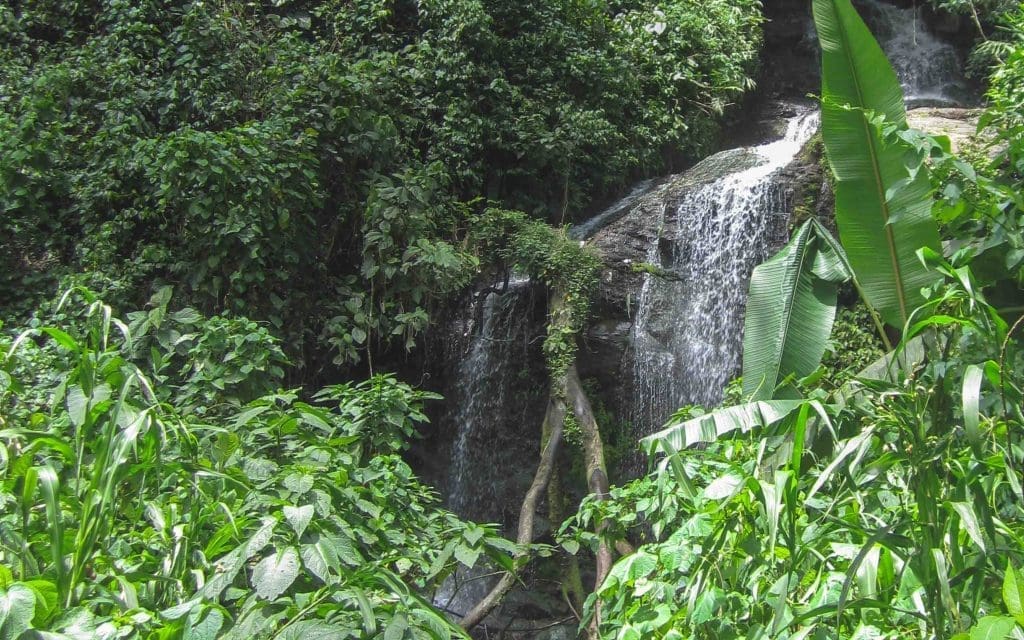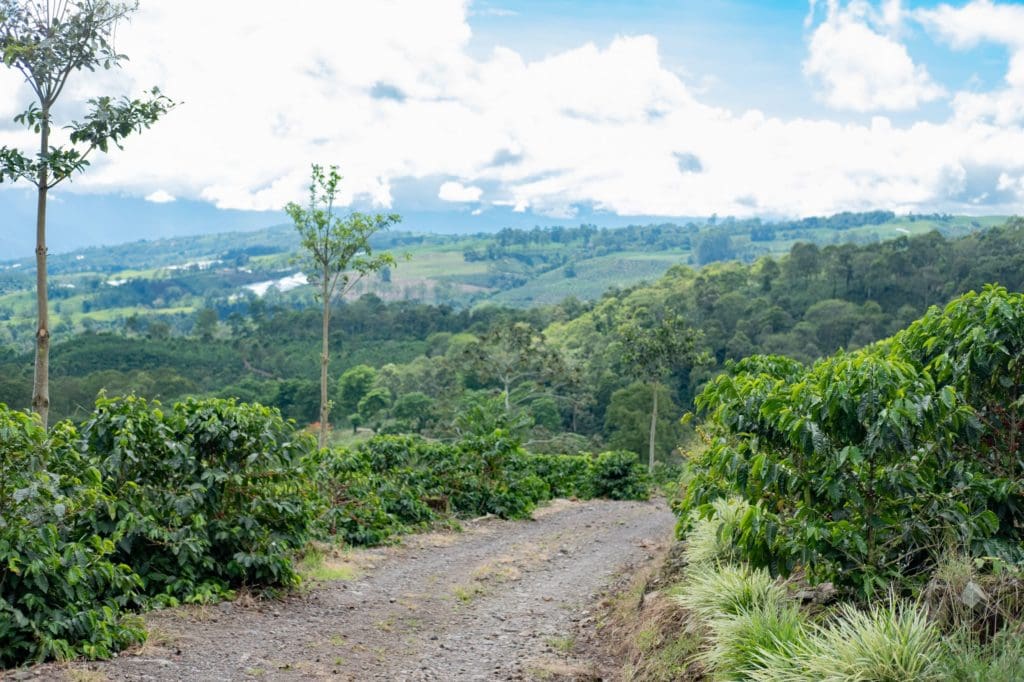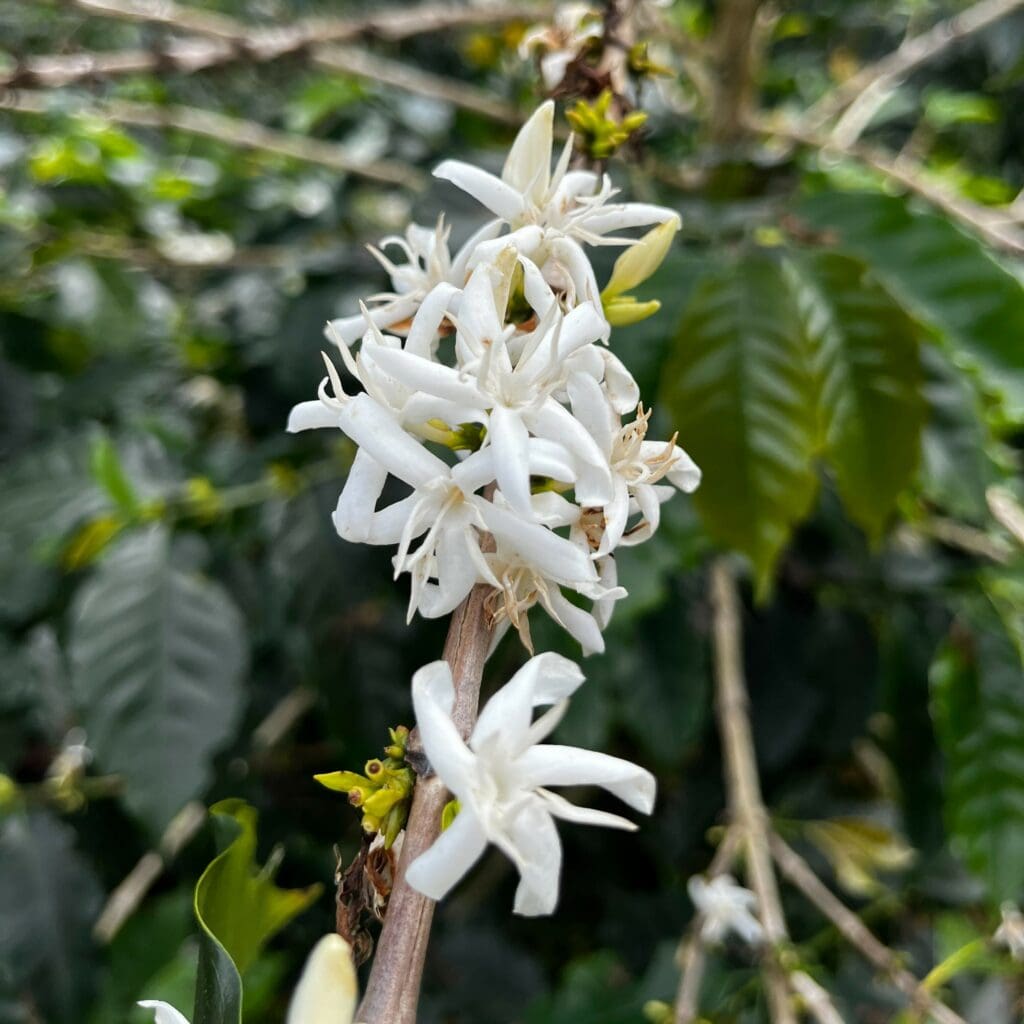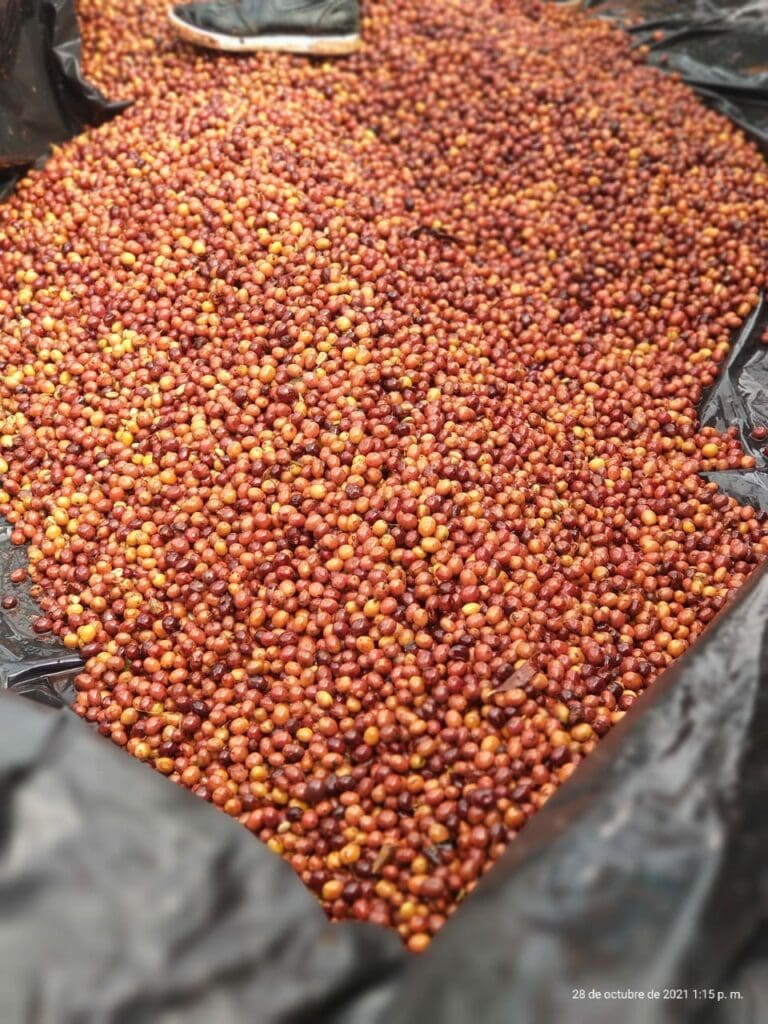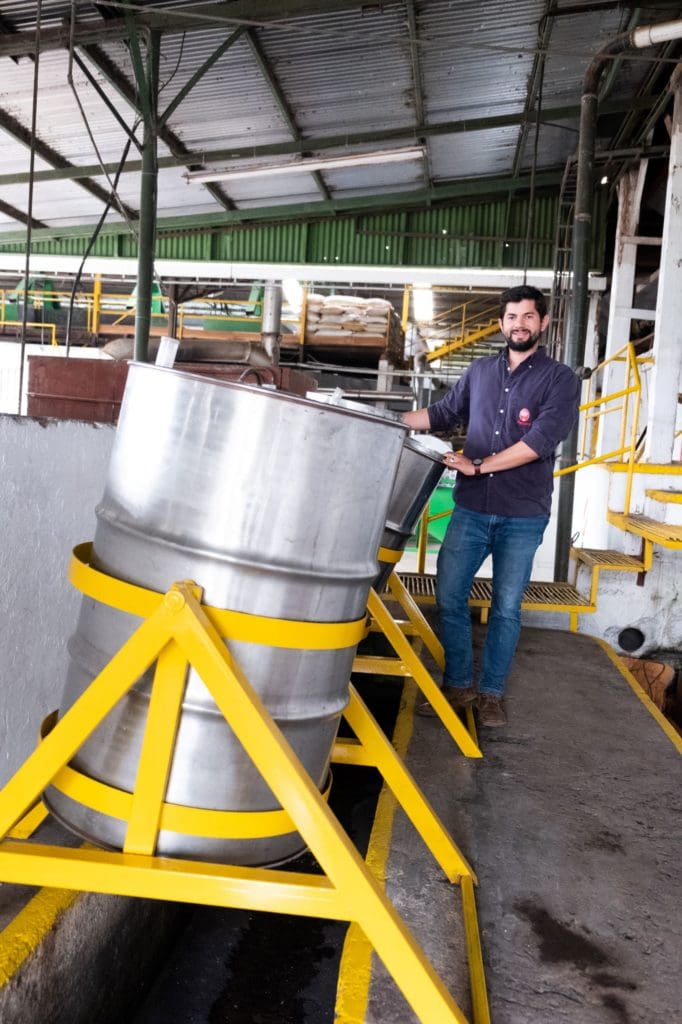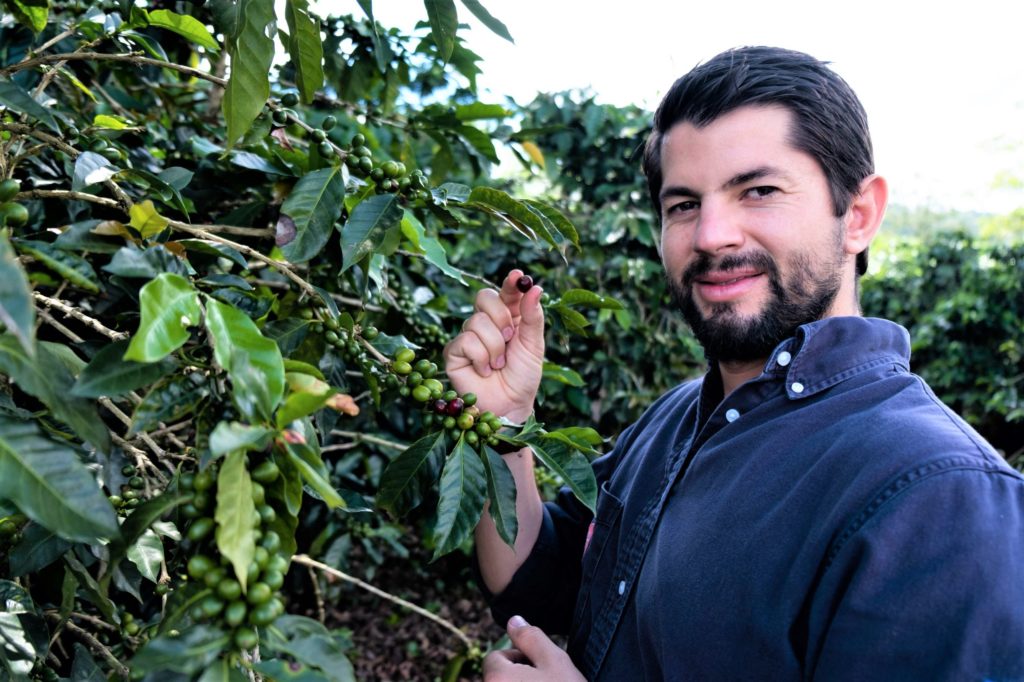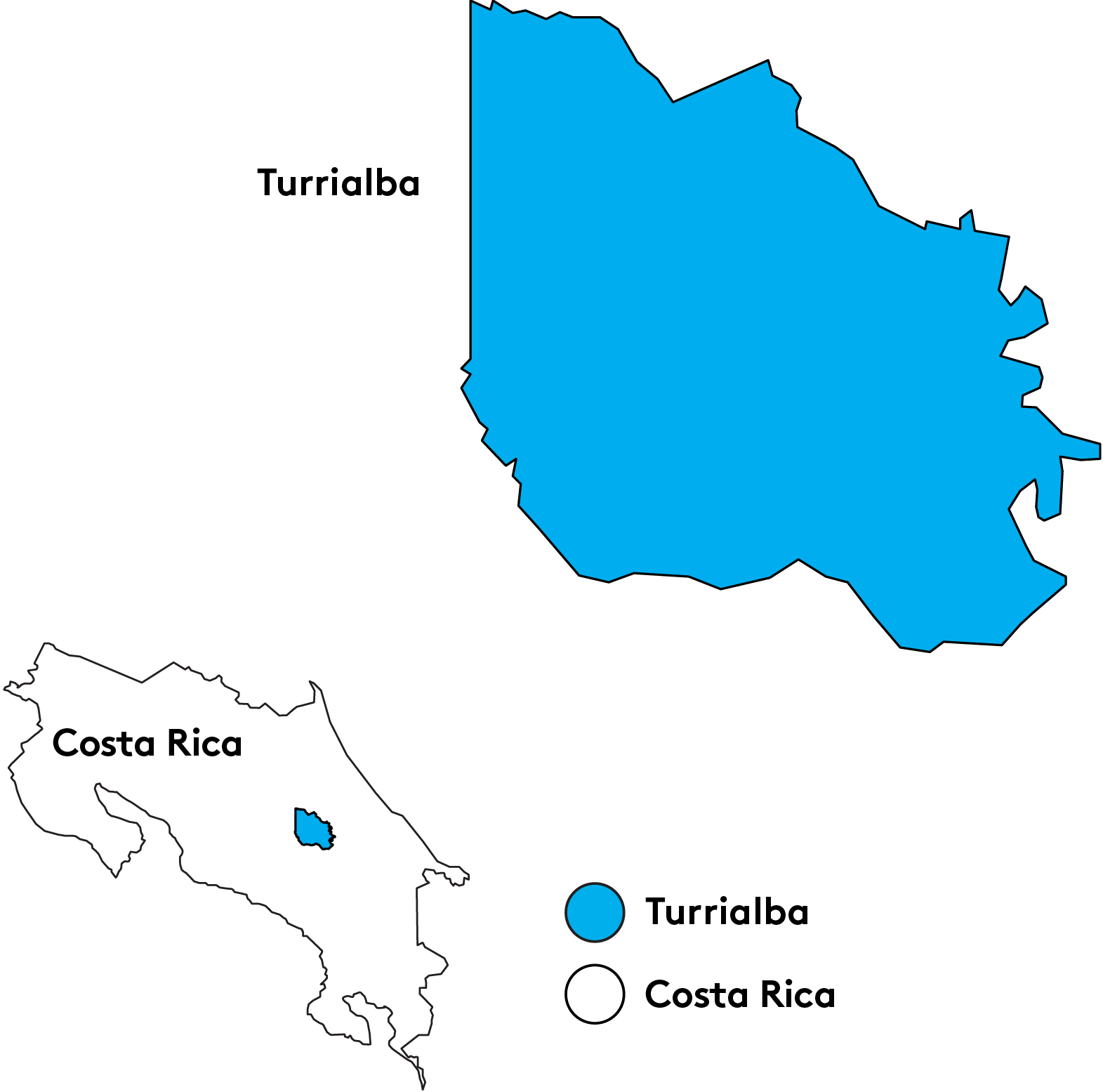The name Aquiares means“land between rivers” in the Huetar indigenous language, and Aquiares Estate is commonly referred to as “Aquiares Coffee and Community.” It is the largest farm in Costa Rica and home to 1,800 people. Although the farm was founded in 1890, Alfonso Robelo is the man responsible for its transformation a century later. Alfonso arrived in Costa Rica in the 1980’s seeking refuge from the civil war in Nicaragua, where he was politically active. When politics soured into violence, he fled the country to keep his family and himself safe after receiving several threats against his life. Once in Costa Rica, Alfonso began building the Aquiares community on the enchanting slopes of the Turrialba volcano, a lush area of forests, rivers, fauna, and bright flora.
Alfredo challenged the status quo, transforming the relationship between landowner and farmworkers. He brought a visionary approach to Aquiares, a farm suffering from low prices and instability. Aquiares had more than 200 employee homes on the farm, but because none owned their home, there was great insecurity in the workforce. Alfonso saw this as an opportunity to strengthen the company by having people feel pride in the coffee they produce. He evolved the farm into a small town where workers purchased their own homes. Today, Aquiares remains a model of sustainable agriculture.
Nowadays Alfonso’s son, Diego, manages the farm. Under his lead, the farm has taken a fresh approach to specialty coffee and exploring the farm’s potential. Through excellent agricultural management, embracing new varieties, and experimenting with processing, Aquiares has become a trailblazer among specialty coffee producers in Costa Rica and all of Central America.
Aquiares focuses on carbon neutrality and measures its greenhouse gas emissions to calculate its carbon emissions against its offsets. An agent verified under the International Panel on Climate Change norms verifies these calculations and Aquiares’ carbon measurement and emissions reduction are part of Costa Rica’s Nationally Appropriate Mitigation Action. In addition to capturing carbon, the farm’s protected biological corridors have long ensured the wellbeing of local animals and plants Aquiares also welcomes researchers from around the world to conduct agricultural and environmental studies on their land. Projects have includedinvestigating the benefits of agroforestry on soil health and observing the diverse bird and wildlife species that thrive in an agroecological environment.
Aquiares is an example of innovation and perseverance whose benefits extend beyond the farm and workers and serve as a model for sustainable, equitable production for the broader coffee industry. The lots selected by Ally Coffee from Aquiares represent our shared commitment to sustainability, equity, and innovation. Mariana is an F1 hybrid cultivar closely related to Starmaya. Mariana originates from across between IAPAR 59 and amale-sterile Ethiopian landrace variety and is one of the first F1 hybrids in the world to be propagated by seed rather than through tissue cloning.
This lot of Mariana coffee underwent Anaerobic Natural processing. The cherries are floated and washed with fresh water but not depulped. Afterwards, the coffee cherries are placed in a stainless-steel tank with a one-way air valve. In the tank the coffee starts to ferment with the natural microorganisms and yeast present on the coffee cherries. The fermentation pushes out all the oxygen and after one or two hours an anaerobic environment is created within the tank. This fermentation continues for a total time of 24 hours. After fermenting, the cherries are washed again with fresh water and dried in the solar dryer. For two days they are first placed on aceramic patio and then finish drying on layered beds within the solar dryer.


